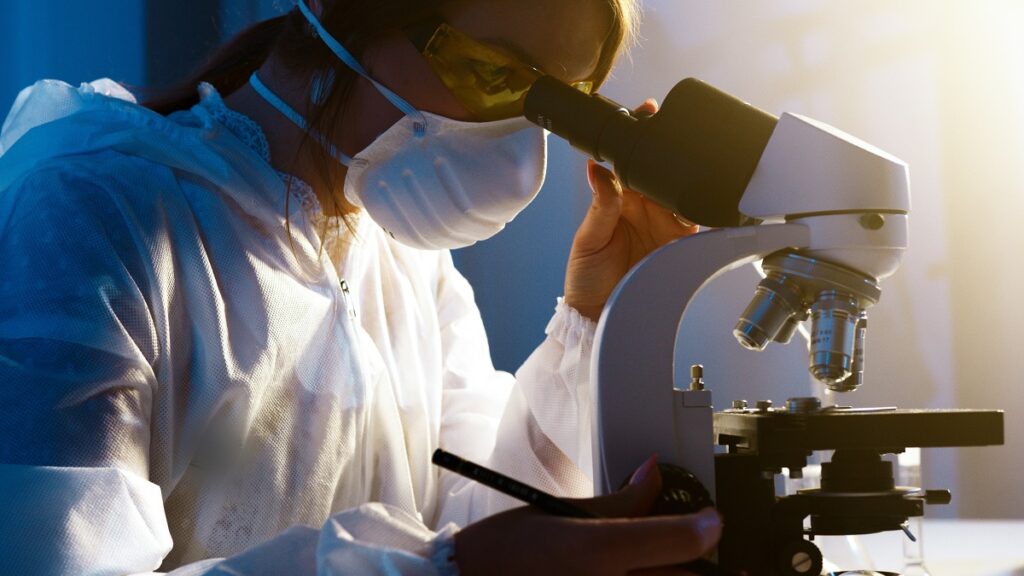The I am BIO podcast is bringing everything biotech-related to the ether, covering topics from AI and CRISPR to new drug developments, vaccines, and even bees and pets. The last episode of the spring 2024 season invites the I am BIO podcast audience to take the wheel and ask a variety of questions to help you better understand the importance of biotechnology.
Q: In 2050, will we be able to feed the world and overcome climate change by agrigenomics?
With a rapidly growing population and perpetually shifting weather patterns, it is no surprise why Nika, a listener from Cologne, Germany, is wondering whether by 2050 the world will be able to source enough food and curb climate change.
And who better to answer this question than a farmer himself? Fred Yoder, who is based in west central Ohio, says agrigenomics could be the answer to the ever-growing population and increasing food demand.
Yoder told I am BIO that the key to responding to the growing food demand is embracing innovation and technology, and adopting new methods to grow crops.
“We have gene editing and the CRISPR technology that is tremendously valuable to us, because even though we’ve had climate change, these new genetics have been tremendous to be able to keep and increase our yields,” Yoder added.
Over the years, biotech has helped farmer improve the health of the soil and boost their crop yield, from bio-based fertilizers to gene-edited crops that are resistant to heat, droughts, or superbugs.
“I’ve doubled my yields on my own farm in the last 20 years,” Yoder explained.
Q: How do we help more people understand that genetically modified crops are safe to eat?
When it comes to gene-edited and genetically modified crops, there’s a lack of understanding and even fear that these products are not safe to eat—even though they’ve been around for decades. Jolene, a farmer from Ida Grove, Iowa, wonders how we can dispel the myth of GMOs.
Ray Dobert, Ph.D., Senior Policy Manager for Bayer Crop Science, explained that traditional media and social media have misrepresented and created a false image about the safety of GMO crops.
“People can say that they dislike GMOs without even really understanding what GMOs are,” Dobert said.
To shift the narrative and help the broad public understand why GMOs are not only safe to consume but good for the economy too, it’s important to “translate complicated science” into stories and analogies that people can relate to, Dobert explained.
Q: How is personalized medicine reshaping patient care?
The arrival of any new drug or treatment sparks excitement in the medical sphere as offers hope for patients and medical professionals. But what if therapies can be customized to each patient’s unique needs and DNA? Colton from Canada asks if personalized medicine will change the approach to patient care.
E’lissa Flores, Ph.D., Director of Science and Regulatory Affairs at the Biotechnology Innovation Organization (BIO) told podcast host Theresa Brady exactly how this is possible: by harnessing precision (or personalized) medicine (PM).
“It is a new emerging method to screen individuals’ genes to help guide doctors decisions in treatment,” Flores said, explaining that PM can also be used in improving diagnosis and preventing diseases too.
Precision medicine screens the patient’s genes, and by using their unique genetic material, it can determine the type of therapy needed to treat their disease or condition, as well as help their doctor adapt the appropriate drug dose with minimal side effects.
“There’s a potential to change to a more individualized approach instead of a one size fits all, and you can utilize screening genomics or biomarkers to give further insight into respective disease risk factors,” Flores added.
Q: What makes startups attractive for acquisition?
Nicki from Massachusetts asked, “I am new to this side of the industry. What makes startup companies attractive to acquisition by larger pharmaceutical companies?”
Bernard Fallon, Deputy Vice President of Industry Programs for BIO, explained what key components startups must have to be attractive for acquisition by a big pharma company.
Though everything starts as an idea, having “detailed, impressive scientific data” can bring a startup closer to their goal.
“They need to have strong intellectual property and that they have sort of an independent ownership of either a molecule or some other element that would be needed by the large pharma company and only available through acquisition,” Fallon added.
Fallon’s advice for startups is to focus on networking, “particularly for startups who need to know what they don’t know,” as this helps them find people with similar goals but more resources, like the upcoming 2024 BIO International Convention in San Diego.
“BIO’s events, particularly through our BIO one-on-one partnering system, make this process highly efficient,” he added.
The pitch deck, as Fallon explains, “needs to be succinct, it needs to be data-centric, because the people you are most likely to partner with are already familiar with the disease space, they already know why it’s either an attractive area for investment or a large unmet patient need.”




